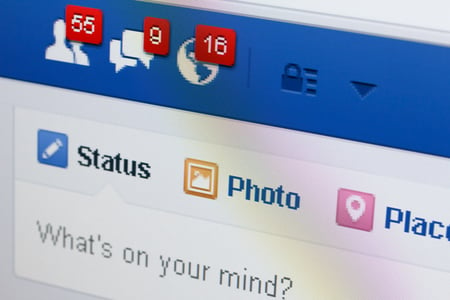 Are you done sweating and hyperventilating from Google's "Mobilegeddon" algorithm update? Don't relax just yet. Facebook is also making changes to its News Feed algorithm as well. I'll give you a minute breathe...
Are you done sweating and hyperventilating from Google's "Mobilegeddon" algorithm update? Don't relax just yet. Facebook is also making changes to its News Feed algorithm as well. I'll give you a minute breathe...
While Googles mobile-friendly algorithm update came with ample warning and let marketers prepare, the Facebook change was much more unexpected and could prove to be equally as painful for businesses. The new Facebook News Feed update has three changes that may sound fairly mundane, but often is the small innocent change that turns out to have the biggest impact. Here's what Facebook is changing:
Here's what Facebook is changing:
1. If a person isn't following a bunch of different companies or have a lot of friend connections, their News Feed won't have much activity. Facebook is now allowing multiple posts from the same source in a row.
2. If the user expresses that they are concerned about missing updates from particular friends, Facebook will give posts by those friends higher priority on your feed. Facebook wrote, "Content posted directly by friends you care about, such as photos, videos, status updates or links, will be higher up in the News Feed so you are less likely to miss it." On the other side of the coin, if they use Facebook to consume information from "pages," they will still see those updates populating their News Feed. This slightly redirects the prioritization of friends over pages.
3. Activity updates by friends will be reduced. Users will see a lot less of "Tony commented on brand X's page," or "Jackie liked Ryan's post." This change takes away activity they might not care about and replace it with more updates from friends and pages you follow directly.
As I said, these News Feed changes might seem harmless on the surface, but the could have a big impact on companies and publishers, decreasing organic reach even more. Let's explore why this might be the case.
Impact on Brand Pages
Facebook has been throttling down organic reach for brands for a little more than a year now. These changes threaten to dissolve what little organic reach they have left, forcing brands to pay to reach their audience. Brand followers that engage with posts will continue to be shown the page's content, but growing that following of people that engage regularly will likely become more difficult.
Facebook continues to want companies to pay to reach people, turning the social network primarily into an advertising tool for businesses. This might turn a lot of marketers off because they used to be able to reach thousands of people for free, Facebook has a fantastic ad platform. Marketers can really target content to the right users at a decent price. This is evident now that Facebook is starting to offer conversion tracking for ad clicks.
Impact on Publishers
Publishers have enjoyed a huge reach and referral traffic numbers for a couple years now. Facebook wants its platform to be a source of news and important information, so they have rewarded publisher pages with increased reach. Facebook announced, "referral traffic to media publishers from Facebook has more than doubled in the past 18 months." This solidifies their commitment to helping publishers find the right audience for their content.
Facebook's Possible Strategy
As a publisher, it's great to enjoy all the organic reach, but it could be a push to make these pages dependent on this traffic. Years ago companies used to enjoy the same organic reach, and then Facebook became limited. Yes, companies were upset by this strategy and are still complaining, but at the end of the day, most of them have agreed to pay to reach Facebook's massive audience. The question is, could Facebook be doing the same thing to publishers? Making them greedy and then taking it away?
These Facebook News Feed changes are just starting to roll out, so only time will tell how much they will affect brand reach and increase the dependence that publishers have. It's important to remember that Facebook is a business, and their goal is to make money. Providing businesses with a fantastic platform to target and host ads is a big part of that business. Both Facebook and Google are behemoths on the internet marketing landscape and when changes come down the pipeline people tend to go a little crazy. Changes coming from both in the same 10-day period might cause you to want to throw your hands in the air, quit your job and become a monk in Tibet, but life will move forward. As marketers, it's our job to learn about the ever changing internet landscape and adapt.





